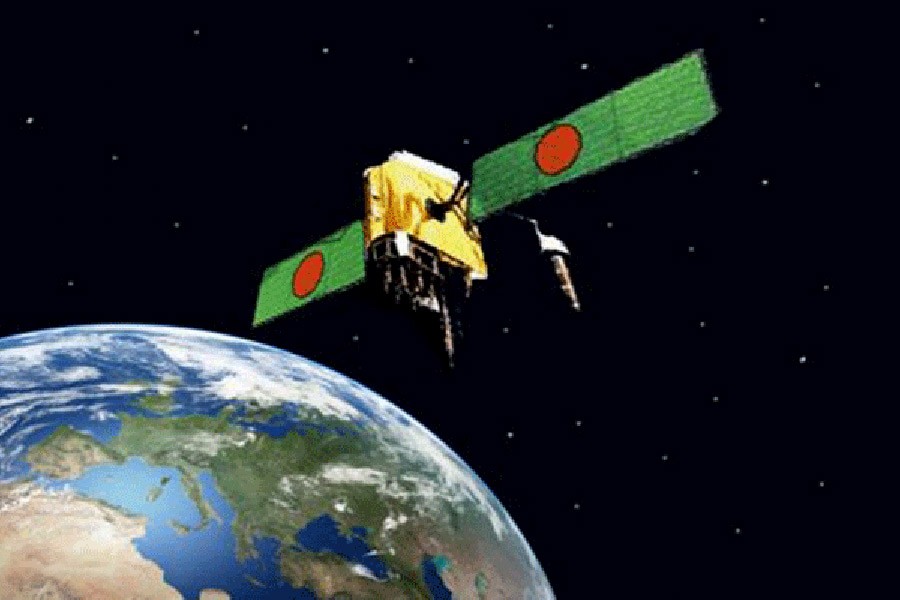Bangladesh's first satellite to be launched into outer space, Bangabandhu-1, has been safely transported to its launch site.
Thales Alenia Space, the French firm that built the 3.5-metric tonne communications satellite, tweeted to this effect on its official account on Saturday (Bangladesh time).
It also shared photos of an Antonov cargo aircraft apparently having landed at an airstrip in Cape Canaveral of Florida, the home to the Kennedy Space Centre.
Bangabandhu-1 will be put into orbit from the centre by the private American space transportation company SpaceX - who have now set the launch date for April 24, reports UNB.
Earlier, Bangabandhu Satellite-1 left Thales Alenia Space's Cannes plant on March 28.
It had a layover in Boston on March 29, before completing the final leg of its journey to the launch site the next day.
Online flight tracking site flightaware.com shares that the Antonov 2383 carrying Bangabandhu-1 arrived at the NASA Shuttle Landing Facility in Titusville, Florida - just west of Cape Canaveral.
Meanwhile, SpaceX over the weekend confirmed the launch date by announcing that its first 'Block-5' Falcon 9 rocket, on which Bangabandhu-1 is manifested, will take off on April 24.
It had earlier set a date of April 20, before reverting to an unconfirmed date in late April.
Thales have also confirmed the launch date, adding on its official Twitter account that use of the Block-5 "has resulted in some extra delay.
However, Bangabandhu-1 will fly on the most advanced and reliable vehicle ever built by #SpaceX".
A SpaceX Falcon 9 rocket will lift the Bangabandhu-1 communications satellite for the Bangladesh Telecommunication Regulatory Commission (BTRC), becoming the first geostationary communications satellite operated by the country.
According to reports in British media, the thrust of the Block 5 engines will be increased by eight per cent, compared to the thrust of the Block 4 units.
The first stage of the latest version of the carrier is designed for ten or more launches.
Ordered from Thales Alenia in late 2015 at a cost of Tk 20.00 billion, Bangabandhu-1 will operate from 119.1° East using a payload comprising 14 C-Band and 26 Ku-Band transponders to deliver focused telecommunications coverage to Bangladesh.
According to Thales, Bangabandhu-1 is designed "to reduce the country's digital divide by providing broadcast and communications services to rural areas, including direct-to-home TV broadcasting across the country and in surrounding regions."
Bangladesh is currently meeting its satellite needs through renting the requisite from foreign operators, for which country is reportedly having to pay $14 million a year for it.
Apart from that saving, Bangabandhu-1 is expected to usher in other revenue gathering opportunities as well, help in areas like disaster management, and above all, to propel Bangladesh, rocket-like, into the 'Space Age'.


